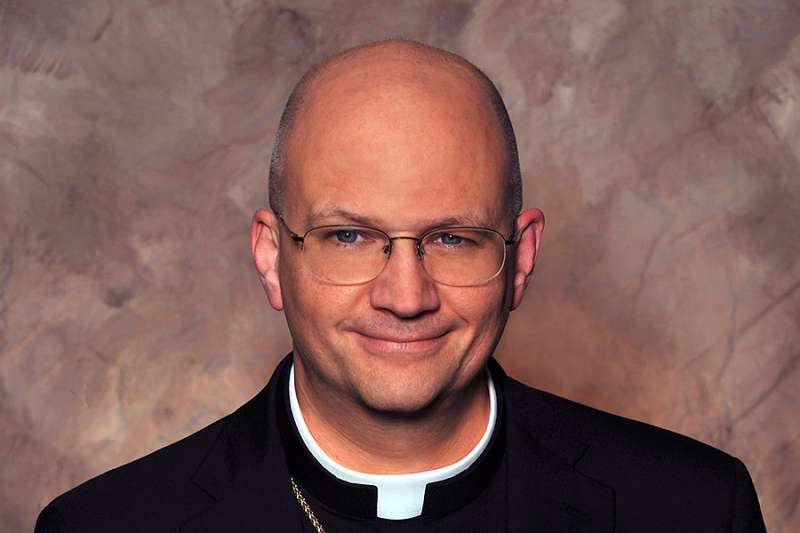A bishop who suggested last week that the Church consider canonical penalties for Catholics involved in the separation of families at the United States’ southern border said Wednesday that penalties are not central to a discussion of immigration reform.
On immigration reform, “the critical issue at hand isn’t canonical penalties, even if the concept has intrigued many. The real issue is children being used as pawns in a contorted effort at punishing their parents or deterring future asylum seekers,” Bishop Edward Weisenburger of Tucson wrote in a June 20 op-ed for the Arizona Daily Star.
At a meeting of the US bishops’ conference in Ft. Lauderdale, Fla., June 13, Weisenburger asked if the bishops’ canonical affairs committee could offer “recommendations, at least to those of us who are border bishops, on the possibility of canonical penalties for Catholics who are involved in this.”
“For the salvation of these people’s souls,” he added, “maybe it’s time for us to look at canonical penalties.”
His remark drew national attention, though some canon lawyers questioned what exactly Weisenburger had in mind.
Weisenburger, himself a canon lawyer, did not mention specific canonical penalties; note what delicts, or canonical crimes, might be pertinent; or indicate whether he intended for penalties to apply to law enforcement officials, lawmakers, or others.
The bishop’s op-ed elaborated on his earlier remarks. Though it attempted to offer clarity, it did not specifically denote what penalties or processes the bishop had in mind.
In his op-ed, Weisenburger said he was not suggesting that Catholics involved in family separation be excommunicated. That penalty, he said, “can be imposed only at the end of a process seeking the conversion of the sinner and reconciliation for the community.”
Weisenburger suggested that canon law offers “lesser options preceding excommunication, such as prayer and penitential practices,” though he did not specify whether those options should also be understood as penalties, which, according to canon law, also must ordinarily be preceded by a legal process.
The bishop’s op-ed seemed to suggest that he intended that canonical penalties would apply to mostly to lawmakers, and not to law enforcement officers.
“As far as the question of canonical penalties for Catholics goes, again, the matter is quite complex. Canonical penalties are not ‘one size fits all.’ In a Christian ethic, legislators and political leaders who facilitate sinful actions have the greater share in responsibility for the resulting violence to human dignity,” he wrote.
The bishop lamented that family separation policies have caused “harm and anguish” for “good and faithful immigration workers.”
“Indeed, the average immigration officer — even if he or she recognizes the inherent evil in the action — might accurately conclude that he or she is able to be a force for good within his or her employment, aiding the situation more than contributing toward the harm of children. In such cases the immigration officer might be justified in his or her endeavors. And of course, immigration officers — like nurses ordered to participate in abortion — clearly deserve the option of conscientious objection,” he wrote.
Some canon lawyers have suggested to CNA that Weisenburger’s comments might have been intended to evoke canon 915, which prohibits Catholics “obstinately persevering in manifest grave sin” from receiving the Eucharist. That prohibition is not technically a “penalty” in canon law, though it is sometimes referred to as one. However, Weisenburger’s op-ed said that he did not intend to suggest that the Church should “deny people the sacraments.”
Bishop Weisenburger declined to be interviewed for this story.
Weisenburger’s op-ed encouraged Catholics to think more carefully about the moral issues involved in immigration policy, rather than the canonical.
Encouraging Catholics to address the “ethical and moral quagmire” at the border, the bishop said that he prays daily “that we will awaken from our slumber and resume walking in the ways of justice, truth, and human rights, leaving the discussion of canonical penalties altogether unnecessary.”

